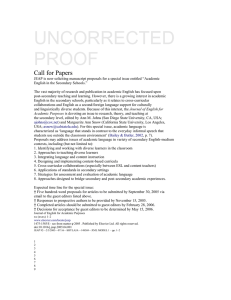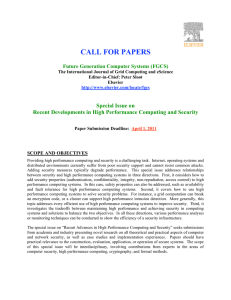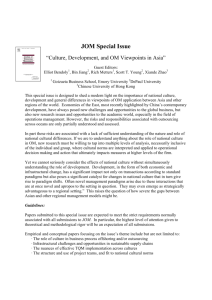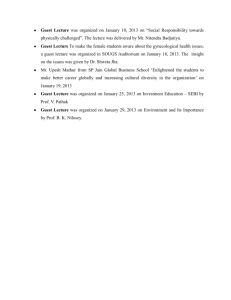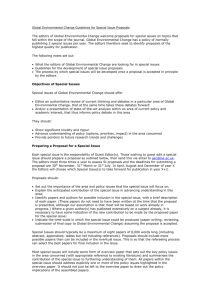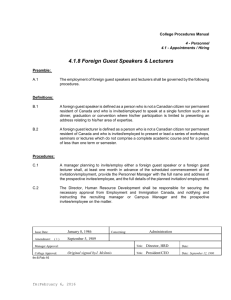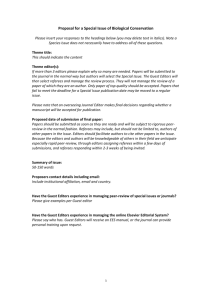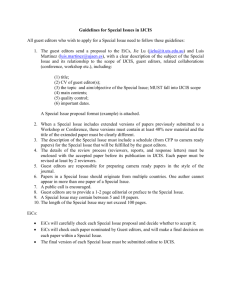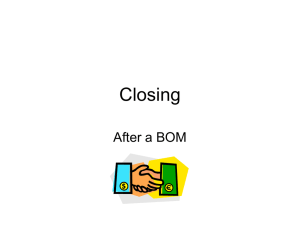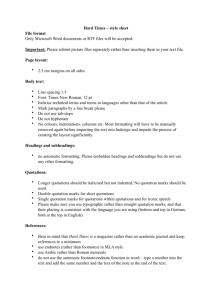IJOIT Special Issue Proposal Guidelines
advertisement
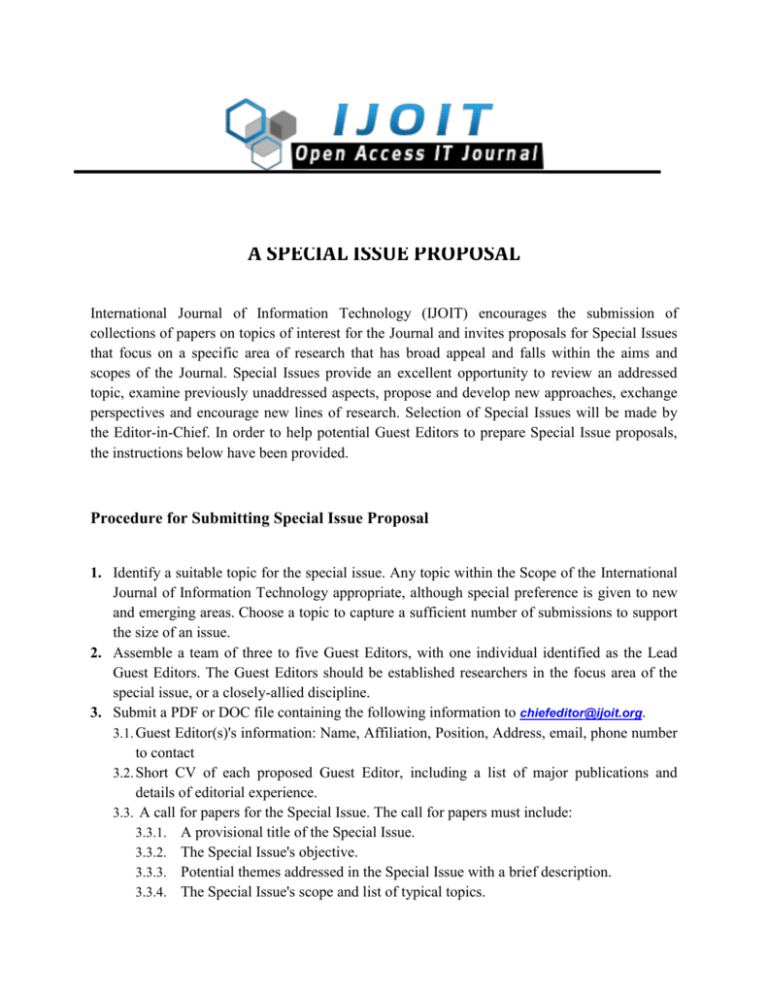
A SPECIAL ISSUE PROPOSAL International Journal of Information Technology (IJOIT) encourages the submission of collections of papers on topics of interest for the Journal and invites proposals for Special Issues that focus on a specific area of research that has broad appeal and falls within the aims and scopes of the Journal. Special Issues provide an excellent opportunity to review an addressed topic, examine previously unaddressed aspects, propose and develop new approaches, exchange perspectives and encourage new lines of research. Selection of Special Issues will be made by the Editor-in-Chief. In order to help potential Guest Editors to prepare Special Issue proposals, the instructions below have been provided. Procedure for Submitting Special Issue Proposal 1. Identify a suitable topic for the special issue. Any topic within the Scope of the International Journal of Information Technology appropriate, although special preference is given to new and emerging areas. Choose a topic to capture a sufficient number of submissions to support the size of an issue. 2. Assemble a team of three to five Guest Editors, with one individual identified as the Lead Guest Editors. The Guest Editors should be established researchers in the focus area of the special issue, or a closely-allied discipline. 3. Submit a PDF or DOC file containing the following information to chiefeditor@ijoit.org. 3.1. Guest Editor(s)'s information: Name, Affiliation, Position, Address, email, phone number to contact 3.2. Short CV of each proposed Guest Editor, including a list of major publications and details of editorial experience. 3.3. A call for papers for the Special Issue. The call for papers must include: 3.3.1. A provisional title of the Special Issue. 3.3.2. The Special Issue's objective. 3.3.3. Potential themes addressed in the Special Issue with a brief description. 3.3.4. The Special Issue's scope and list of typical topics. Suggested timetable including the dates of submissions, reviews and authors’ revision of papers, acceptance notification, publication, etc) 3.4. Give a plan on how submissions to the Special Issue will be consolidated. If the submissions will be based on a conference, workshop or the results of a project, please also indicate the source of the submissions. 3.5. A promotion plan explaining how the call for papers will be advertised (web sites, distribution lists, conferences, associations, etc.). 3.6. Describe the plan on how the review process will be organized. 3.7. A list of potential reviewers. 3.8. Expected countries of the authors on the Special Issue. 3.9. Estimate the number of submissions and number of papers to be published in the Special Issue. 3.10. An explanation in the proposal about how potential Guest Editors plan to attract researchers from around the world. 3.11. If the proposal is for selected papers of a conference/workshop, the following information should be included as part of the proposal as well: 3.11.1. The name of the conference/workshop. 3.11.2. Home page URL. 3.11.3. Publisher and indexing of the conference proceedings. 3.11.4. Sponsorship 3.11.5. Scope 3.11.6. History of the conference/workshop. 3.3.5. Proposal Approval Process All proposals are subject to approval by the Journal following a discussion of the proposed Special Issue among the Journal's Editorial Board. Depending on their feedback, the proposal may be approved, rejected (with appropriate supporting reasons), or returned to the Guess Editor(s) for additional information. Usually this process will take two weeks. If approved, a Call for Papers for the Special Issue will be issued and posted online.
